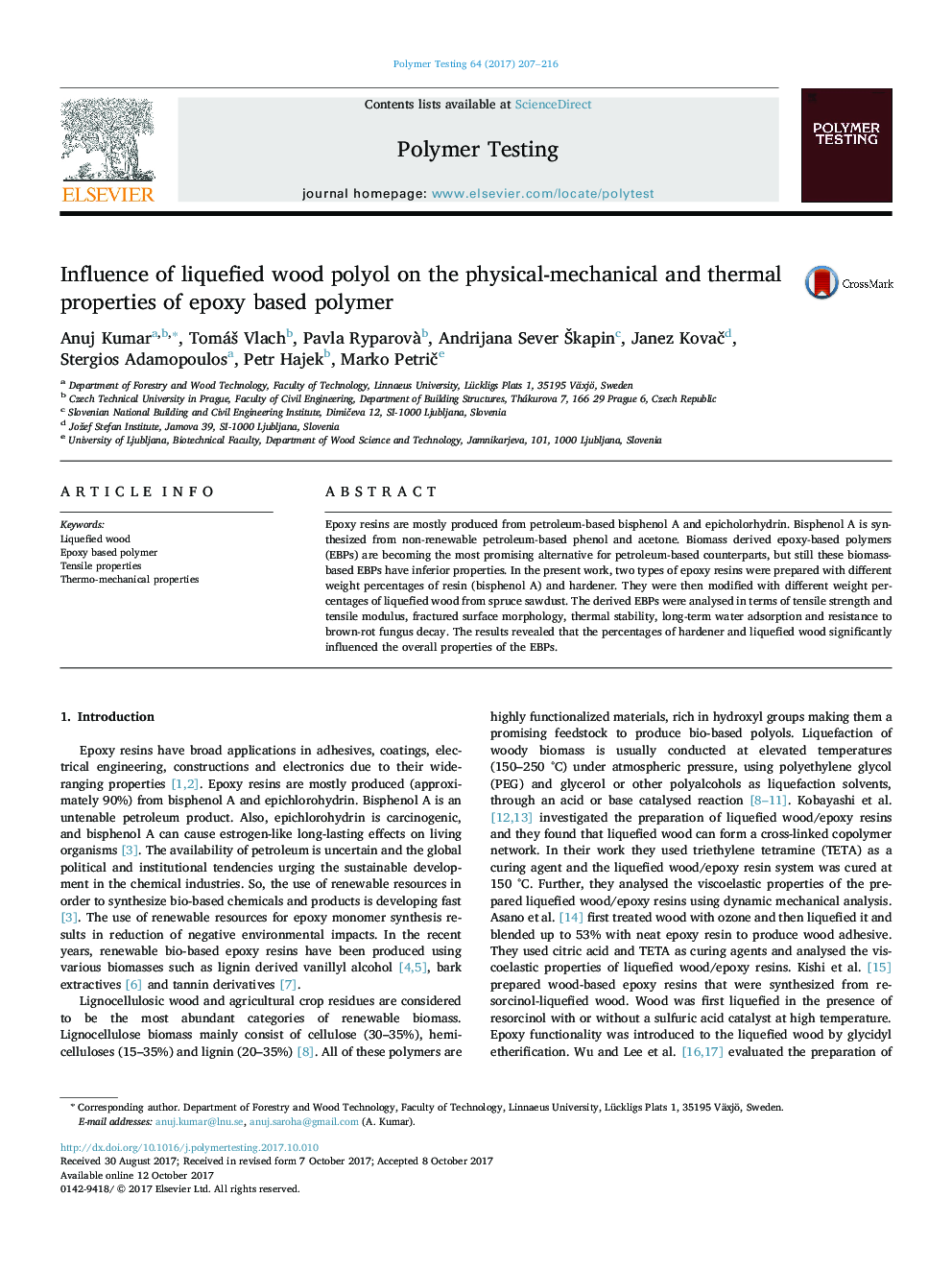| Article ID | Journal | Published Year | Pages | File Type |
|---|---|---|---|---|
| 5205222 | Polymer Testing | 2017 | 10 Pages |
Abstract
Epoxy resins are mostly produced from petroleum-based bisphenol A and epicholorhydrin. Bisphenol A is synthesized from non-renewable petroleum-based phenol and acetone. Biomass derived epoxy-based polymers (EBPs) are becoming the most promising alternative for petroleum-based counterparts, but still these biomass-based EBPs have inferior properties. In the present work, two types of epoxy resins were prepared with different weight percentages of resin (bisphenol A) and hardener. They were then modified with different weight percentages of liquefied wood from spruce sawdust. The derived EBPs were analysed in terms of tensile strength and tensile modulus, fractured surface morphology, thermal stability, long-term water adsorption and resistance to brown-rot fungus decay. The results revealed that the percentages of hardener and liquefied wood significantly influenced the overall properties of the EBPs.
Related Topics
Physical Sciences and Engineering
Chemistry
Organic Chemistry
Authors
Anuj Kumar, TomáÅ¡ Vlach, Pavla Ryparovà , Andrijana Sever Å kapin, Janez KovaÄ, Stergios Adamopoulos, Petr Hajek, Marko PetriÄ,
